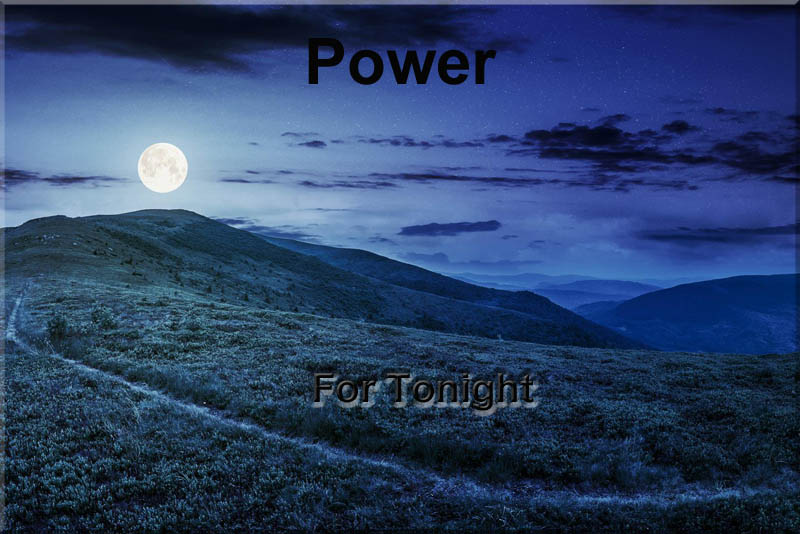The Many Names of God

The Bible contains many names for God, describing His many attributes. Meditating on the names of God, brings us closer to Him and helps us to be thankful for Who He is and what He does.
- Adonai-Jehovah means the Lord our Sovereign. In Malachi 1:6, The Lord asks where is the honor due Him as father and the respect due Him as master.
A sovereign is a monarch or other supreme ruler. It is someone who is above all others in character, importance, or excellence. It is someone who is indisputable.
Is the Lord, sovereign in my life? Is He the indisputable authority in my life? Read more.
- El-Elyon means the Lord Most High. Genesis 14:1-20, Isaiah 14:13-14
Does the Lord occupy the highest possible position in my life? Read more about El-Elyon.
- El-Olam means the Everlasting God. Isaiah 40:28-31 describes Him as the Creator of the ends of the earth who will not grow tired or weary. Isaiah says that those who hope in the Lord will renew their strength, will not grow weary and not faint.
I can trust my God who is eternal. He will last forever. Read about El-Olam - Everlasting God.
- El-Shaddai means God Almighty or the God Who is Sufficient. He is enough. He is as much as I will ever need. Genesis 17:1 and Psalm 91:1 Read about El-Shaddai here.
- Jehovah-Elohim means the eternal Creator. Eternal means that He is without beginning or end. He always existed. Genesis 1:1 says that in the beginning, He created the heavens and the earth. Psalm 19:1 says that the heavens declare His glory and the skies proclaim the work of His hands. Read more about Jehovah-Elohim.
- Jehovah-Jireh means the Lord our Provider. Genesis 22:13 � 14 describes how the Lord provided an acceptable sacrifice. Abraham called that place the Lord Will Provide. Read more about Jehovah-Jireh.
- Jehovah-Nissi means the Lord our Banner. In Exodus 17, Joshua was fighting the Amalekites. As long as Moses held up his hands, the Israelites won, but whenever he lowered his hands, they lost ground. Moses built an altar and called it the Lord is my Banner.
A Banner is anything that is regarded or displayed as a symbol of principles. Read more about Jehovah-Nissi.
- Jehovah-Ropheka or Rapha means the Lord our Healer. In Exodus 15, the Lord told the Israelites "I am the Lord, who heals you." He is more than a healer of physical hurts. He heals broken hearts, broken relationships and broken lives. Read about Jehovah-Ropheka here.
- Jehovah-Shalom means the Lord our Peace. In Judges 6, Gideon has seen the divine presence of God. He was understandably shaken, but the Lord said to him, "Peace! Do not be afraid. You are not going to die," Gideon built an altar to the Lord and called it The Lord is Peace. We can have peace in our hearts that we are at peace with God. When we meet Him face to face, we will not die, we will have life. Read about Jehovah-Shalom.
- Jehovah-Tsidkenu means the Lord our Righteousness. Jeremiah 23:6
Righteousness is the state of being without guilt of sin. Since Jesus' sacrifice, we can be confident that we are without guilt and sin. He is our righteousness. Read more.
- Jehovah-Mekaddeshkem means the Lord our Sanctifier.
Sanctify means to make holy. To set apart as sacred. To purify or free from sin.
In Exodus 31:13, the Lord tells the Israelites to observe His Sabbaths. That would be a sign for generations to come so that they would know that "I Am the Lord who makes you holy." Read more about Jehovah-Mekaddeshkem here.
- Jehovah-Rohi means the Lord our Shepherd. Psalm 23:1 says "The Lord is my Shepherd, I shall not be in want." A shepherd is a person who protects, guides and watches over a person or group of people. Read about Jehovah-Rohi here.
What safer feeling can there be than to have my God as my shepherd?
- Jehovah-Shammah means the Lord is Present. Ezekiel 48:35 I want the Lord to be present in my home, in my work place, in my city and in my country. Read more.
- Jehovah-Sabbaoth means the Lord of Hosts. He is Lord of all the multitude of angelic armies of heaven. Read more about Jehovah-Sabbaoth.
- El-Roi means the strong One Who sees. Genesis 15 tells the story of Hagar, Sarah's servant. Hagar ran away from Sarah because of being mistreated. The angel of the Lord found her in the desert, gave her a prophecy of the son she would have and sent her back to her mistress. Hagar gave this name to the Lord, saying "You are the God who sees me."
My God sees me when I hide from everyone else. He sees the pain and the suffering that no one else sees. He is the One Who sees. Read about El-Roi. - Jehovah-Sabbaoth means the Lord of Hosts. He is Lord of all the multitude of angelic armies of heaven. Read more about Jehovah-Sabbaoth.
 A Walk With the Women of the Bible EBook by Lynne Chapman Join me in getting to know some amazing women of the Bible while we extract valuable insights and lessons from their lives. Now available for Kindle under new title A Walk With EVE Also available in paperback from Cafe Press. |  Names of God Ebook Almighty God. The Creator of heaven and earth. Our God is given names in Scripture that describe the characteristics of His personality. Experience God. |
You Should Also Read:
Who is Jesus?
Jesus is Known by These Names
Bible Referances You Didn't Know You Used

Related Articles
Editor's Picks Articles
Top Ten Articles
Previous Features
Site Map
Follow @LynneChapman
Tweet
Content copyright © 2023 by Lynne Chapman. All rights reserved.
This content was written by Lynne Chapman. If you wish to use this content in any manner, you need written permission. Contact Lynne Chapman for details.









